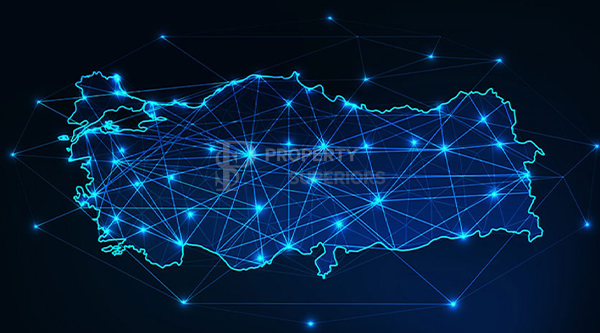
Have you ever been listening to the news and thought, "Turkiye? Is it a mistake? Buckle up as we explore the mystery of Turkey's choice to change its name to Turkiye. We'll take you on an exciting journey from the enchanted steppes of Central Asia to the busy streets of contemporary Istanbul.
The Change's Initiator: The Spark
President Recep Tayyip Erdogan's administration in Turkey introduced Turkiye in 2021 as a moniker that reflects the country's diverse cultural heritage. Why the change then? Turkiye sought to reflect the national heritage and prevent misunderstanding with the feathered bird that bears its name. To do this, it used a spoonful of identity, a dash of global branding, and a handful of separating itself from the feathered bird. After all, a nation with as rich of a history as Turkey's deserves to be noticed!
From Turkey to Turkiye
You're probably wondering how such a beautiful area came to have the name of a bird attached to it. The name "Turkia," which Europeans used to describe the Ottoman Empire, is likely the source of the English word "Turkey." In contrast, Turks have long referred to their country as "Türkiye," which translates to "Land of the Turks."
The country aims to express its identity on the international scene by regaining Turkiye. A name that conjures up images of brave nomads, powerful civilizations, and a tapestry made with tenacity and skill.
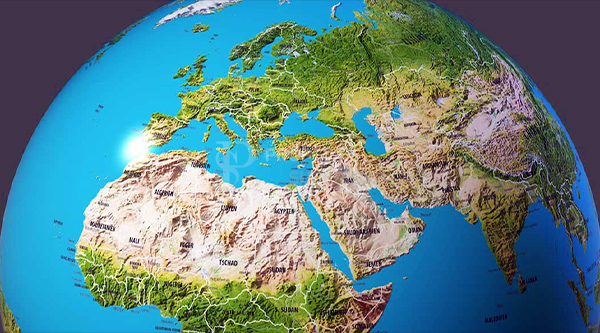
Nomads, Empires, and Resilience: A Saga
The story starts more than 2,000 years ago, on the Orkhon Inscriptions in Mongolia, where the name "Türk" first entered history. A nomadic people, the ancient Turks trotted through the steppes of Central Asia, leaving a trail of brilliant cultural artifacts in their wake.
A wave of vigor raced through the steppes as the sixth century came into being. The tough and brave Göktürks suddenly appeared on the scene. These were not your typical nomads; instead, they built entire empires. The Göktürks established an empire that stretched from the lands of contemporary China to Eastern Europe by weaving together a patchwork of tribes. In addition to leaving behind a legacy of conquest, they also paved the way for commercial and cultural contacts between the East and the West by establishing the Silk Road.
However, as time passed, the Göktürks diminished and other forces arose. When the Seljuks arrived in Anatolia in the 11th century, the region's geography was set to undergo an irreversible alteration. The Seljuks stormed into the region that is now known as Turkey, driven by a fervor for conquest. They created a beautiful mosaic by fusing the vigor of Turkish culture with the refinement of Persian culture. Their caravanserais marked the Silk Road, and architectural wonders from that time period, like as the Alhambra, still remain as reminders of a powerful cultural crucible.
The scene was now set. It was time for the great crescendo, which would be the Ottoman Empire, as the desire for empires had been passed down through the years like a baton. A minor Anatolian beylik (principality) founded it in the late 13th century, and it expanded to become a behemoth that spanned three continents. It served as a bridge between the Eastern and Western civilizations for six centuries, blending many cultures and serving as an incubator for the arts and sciences.
But the winds of change must be faced by every empire. After a long period of decline, the Ottoman Empire died out following World War I. The unstoppable Mustafa Kemal Ataturk fashioned a new, secular society from its ashes. His bold plans and reforms carried the fledgling Turkish Republic into the 20th century, giving it the trappings of modernity while preserving the echoes of its glorious history.
The Republic of Turkey is a nation steeped in history, a moving synthesis of nomadic vivacity, imperial grandeur, and an uncompromising character that still influences its future.
The Lifeblood of Turkic Heritage a diaspora
Today's Turkic peoples constitute a constellation of diverse civilizations, their linguistic legacy enriching a tapestry that spans continents. The ancient pulse of the steppes still reverberates in many parts of the world, with some 170 million speakers of Turkic languages.
The majority of people in Azerbaijan speak the Turkic language of Azeri. Azerbaijan is a vibrant fusion of Eastern European and Central Asian civilizations that has historical and cultural links to Turkiye. The Land of Fire is a nation where impressive contemporary architecture coexists with historic Zoroastrian temples.
Another thread in the Turkic fabric is Turkmenistan, which is located in Central Asia. The nation is a treasure mine of historical treasures, like the ruins of Merv and the rich tapestry of Turkmen carpets, and the language of Turkmen echoes the timbre of old Oguz dialects.
The Uzbek language reflects the historical history of its people as members of several Turkic khanates and empires, and is spoken in Uzbekistan, home to the fabled Silk Road towns of Samarkand and Bukhara.
Kazakh and Kyrgyz languages, which preserve the melody of the old Turkic tongues, are spoken in Kazakhstan and Kyrgyzstan, where the endless steppes still nurture the nomadic spirit.
There are other areas and communities that continue the tradition outside of the nations where Turkic languages are widely spoken. The colorful tapestry of the Turkic world is enriched by the contributions of the Crimean Tatars in Ukraine, the Uighurs in China's Xinjiang province, the Gagauz in Moldova, and the Turkish Cypriots in Northern Cyprus.

Furthermore, the Turkic diaspora has established itself in regions that are removed from the steppes and the Silk Road. Turkish populations in Germany, France, and the Netherlands preserve their cultural traditions while adding to the diversity of Europe. Turkish Americans and Canadians have carved out a space in North America, establishing cultural ties and adding to the rich variety of their adoptive countries. The Turkic population, primarily made up of Turkish immigrants, has also grown significantly in Australia.
The Turkic diaspora has a rich legacy of literature, food, art, and culture in addition to the Turkic people themselves. The essence of the Turkic world lives on in everything from the sumptuously spiced food to the literary echoes of Yunus Emre and Chagatai to the joyous rhythms of traditional dances.
The Turkic diaspora may be compared to a magnificent symphony that was constructed over millennia, with notes molded by steppe winds, chords resonating with empires, and a beat that sways with the richness and vibrancy of its people.
A Symphony of Continents and Cultures: Turkiye
It is obvious that Türkiye is more than just a name; it is an embodiment of a rich legacy and a symbol of fresh beginnings as we have traveled through the vast annals of history and examined the colorful diaspora. However, let's look past the reminders of the past and onto the infinite vistas of possibility.
The rebranding is a bold step towards the future as well as a tribute to the past. Turkiye is rife with opportunity. Turkiye is ideally situated to play a key role in international trade and diplomacy because to its role as a bridge between Europe and Asia. Its booming economy, creative entrepreneurs, and abundant resources provide the backdrop for economic wonders.
Turkiye is gradually realizing its potential in the fields of science and technology. The nation is fostering an innovation culture thanks to its growing youthful population, entrepreneurial energy, and investments in R&D. Turkiye is gradually assuming the mantle of a knowledge-driven economy, from developments in aeronautical engineering to renewable energy options.

Turkiye's contemporary cultural tapestry is just as rich as its ancient heritage. There is a renaissance in contemporary literature, film, music, and art. While Istanbul's art sector flourishes with galleries, festivals, and exhibitions, Turkish television programs are eaten around the globe.
Turkiye's assertion of its new identity signals a deeper commitment to environmental responsibility worldwide. Turkiye has the chance to make a lasting impact on world affairs via diplomatic efforts to settle disputes and proactive involvement in environmental sustainability.
In the end, Turkiye, with its new identity, sits at the threshold of an opportunity-rich world. It involves looking forward with aspiration as well as looking back with pride. Turkiye is prepared to fly and leave both an old and modern legacy.
So, instead of merely whispering old legends about Turkiye, let's also talk about the blank pages that are just waiting for fresh exploits, discoveries, and victories.
Turkiye is a place where the past, present, and future all come together in a harmonious symphony that cuts over countries and cultures.
Related posts:
The Turkish official gazette published on Tuesday, December 12, a Republican decision issued by the presidency of the Republic of Turkey and Turkish President "Recep Tayyip Erdogan" and bearing the number 32397 regarding making some amendments to the conditions for...
The first day of last September witnessed the implementation of a new law imposing financial fines on real estate owners who impose exorbitant rents on tenants in Turkey, as disputes in recent years between landlords and tenants of real estate...


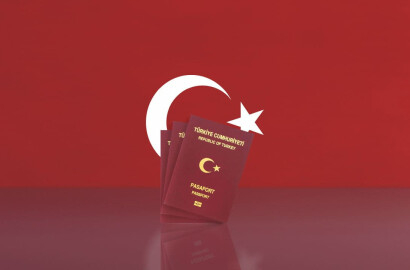

 New provisions for obtaining Turkish citizenship through real estate ownership
New provisions for obtaining Turkish citizenship through real estate ownership
 Turkish Real Estate Rental Law 2024
Turkish Real Estate Rental Law 2024
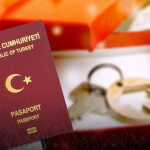 Ways to obtain Turkish citizenship through investment 2024
Ways to obtain Turkish citizenship through investment 2024
 How to choose an ideal apartment in Turkiye?
How to choose an ideal apartment in Turkiye?
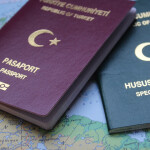 Turkish passport... Extraction method and fees 2024
Turkish passport... Extraction method and fees 2024
